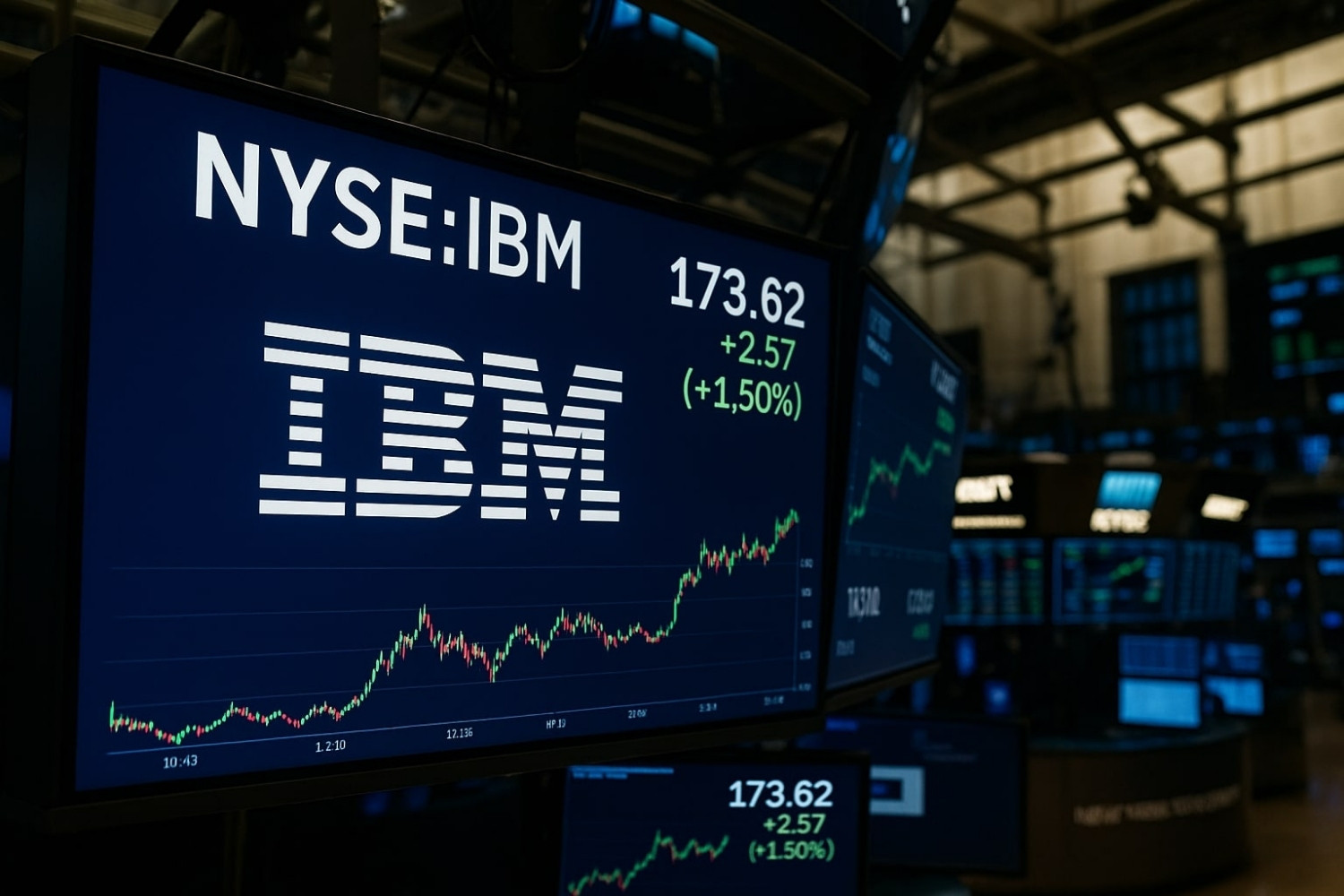
IBM stock has been a staple in the tech industry for decades. But what makes it so intriguing? From its historical performance to its impact on the market, IBM stock offers a wealth of information for investors. Did you know that IBM was one of the first companies to be listed on the New York Stock Exchange? Or that it has consistently paid dividends for over a century? Whether you're a seasoned investor or just starting, understanding IBM stock can provide valuable insights into the tech sector. Let's dive into 18 fascinating facts about IBM stock that you might not know.
IBM's Historical Background
IBM, short for International Business Machines, has a rich history dating back over a century. Understanding its past can provide valuable insights into its stock performance.
-
Founded in 1911: IBM started as the Computing-Tabulating-Recording Company (CTR) in 1911. It was renamed IBM in 1924.
-
Pioneered Mainframe Computers: IBM introduced its first mainframe computer, the IBM 701, in 1952. This innovation revolutionized data processing.
-
First Stock Listing: IBM went public in 1916, listing its shares on the New York Stock Exchange (NYSE).
IBM's Financial Performance
IBM's financial health is a key factor for investors. Let's look at some critical financial facts.
-
Consistent Dividend Payouts: IBM has been paying dividends since 1916, making it a reliable choice for income-focused investors.
-
Revenue Streams: IBM generates revenue from multiple segments, including cloud computing, AI, and consulting services.
-
Market Capitalization: As of 2023, IBM's market cap stands at approximately $120 billion, reflecting its significant presence in the tech industry.
Innovations and Acquisitions
IBM's growth has been fueled by continuous innovation and strategic acquisitions. These moves have kept it relevant in a rapidly changing tech landscape.
-
Watson AI: IBM's Watson AI, launched in 2011, has been a game-changer in artificial intelligence and machine learning.
-
Red Hat Acquisition: In 2019, IBM acquired Red Hat for $34 billion, marking one of the largest tech acquisitions in history.
-
Quantum Computing: IBM is a leader in quantum computing, with its IBM Q system being one of the most advanced in the world.
Stock Performance and Trends
Understanding IBM's stock performance over time can help investors make informed decisions.
-
Stock Splits: IBM has split its stock six times since going public, with the most recent split occurring in 1999.
-
Dividend Yield: IBM's dividend yield is around 4.5%, making it attractive for dividend investors.
-
Stock Buybacks: IBM has a history of stock buybacks, which can boost shareholder value. In recent years, it has repurchased billions of dollars worth of shares.
Challenges and Risks
Like any investment, IBM stock comes with its own set of challenges and risks.
-
Competition: IBM faces stiff competition from tech giants like Microsoft, Amazon, and Google, particularly in the cloud computing space.
-
Legacy Systems: IBM's reliance on legacy systems can be a double-edged sword, providing stable revenue but also posing modernization challenges.
-
Economic Sensitivity: IBM's performance can be sensitive to economic downturns, affecting its stock price.
Future Prospects
Looking ahead, IBM has several growth opportunities that could impact its stock performance.
-
Hybrid Cloud Strategy: IBM is focusing on hybrid cloud solutions, combining public and private cloud services to meet diverse client needs.
-
AI and Machine Learning: Continued investment in AI and machine learning technologies positions IBM for future growth.
-
Sustainability Initiatives: IBM is committed to sustainability, aiming to achieve net-zero greenhouse gas emissions by 2030, which could enhance its appeal to socially conscious investors.
Final Thoughts on IBM Stock
IBM stock has a rich history and a promising future. From its early days as a computing pioneer to its current focus on cloud computing and AI, IBM has consistently adapted to changing tech landscapes. Investors have seen both highs and lows, but the company's commitment to innovation remains strong. Dividends have been a steady attraction for shareholders, providing reliable income over the years. With recent strategic moves, like the acquisition of Red Hat, IBM aims to solidify its position in the tech industry. Keeping an eye on IBM's financial health, market trends, and technological advancements can offer valuable insights for potential investors. Whether you're a seasoned investor or just starting, understanding IBM's journey can help make informed decisions. IBM's resilience and adaptability make it a noteworthy player in the stock market.
Was this page helpful?
Our commitment to delivering trustworthy and engaging content is at the heart of what we do. Each fact on our site is contributed by real users like you, bringing a wealth of diverse insights and information. To ensure the highest standards of accuracy and reliability, our dedicated editors meticulously review each submission. This process guarantees that the facts we share are not only fascinating but also credible. Trust in our commitment to quality and authenticity as you explore and learn with us.
